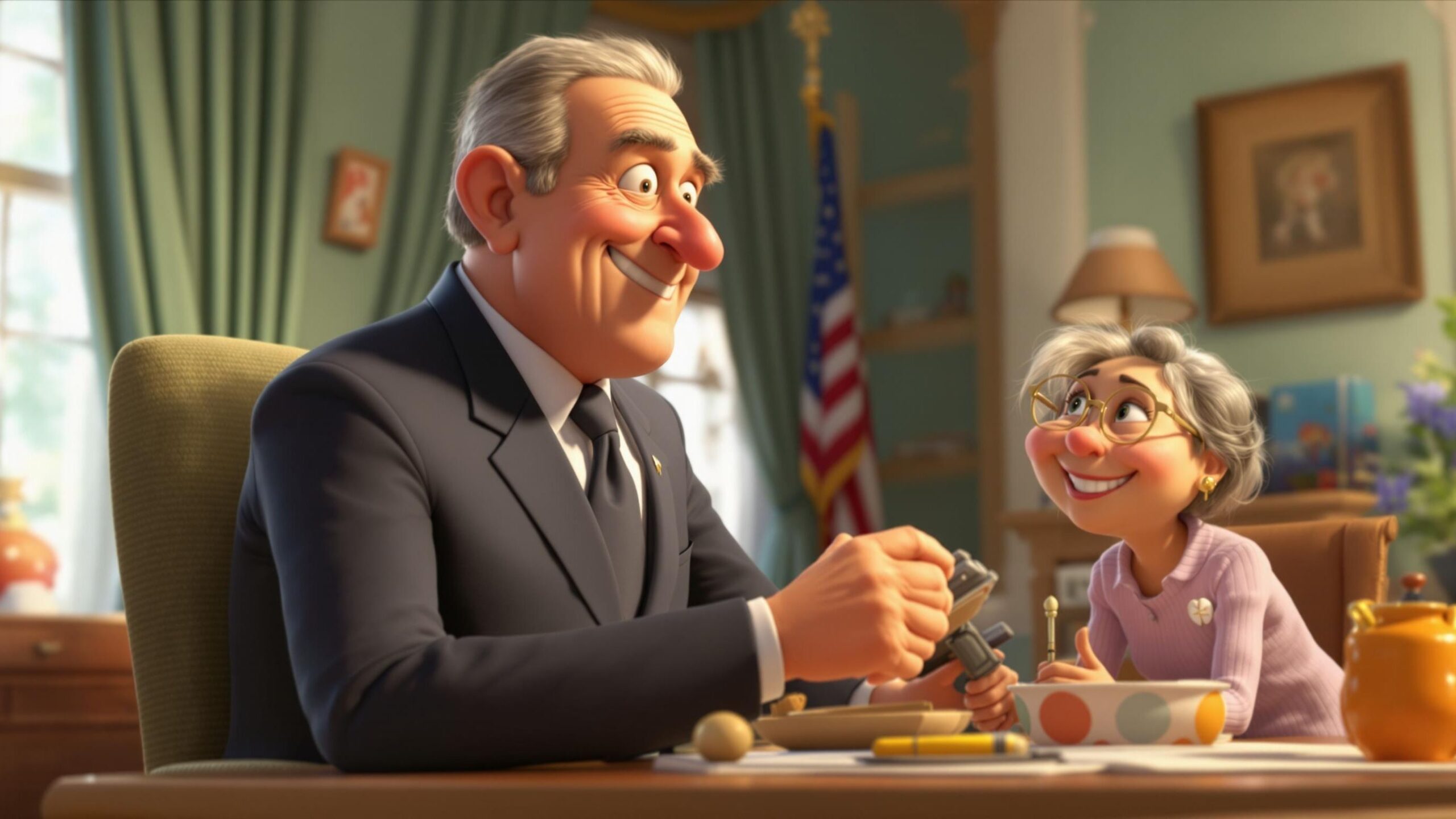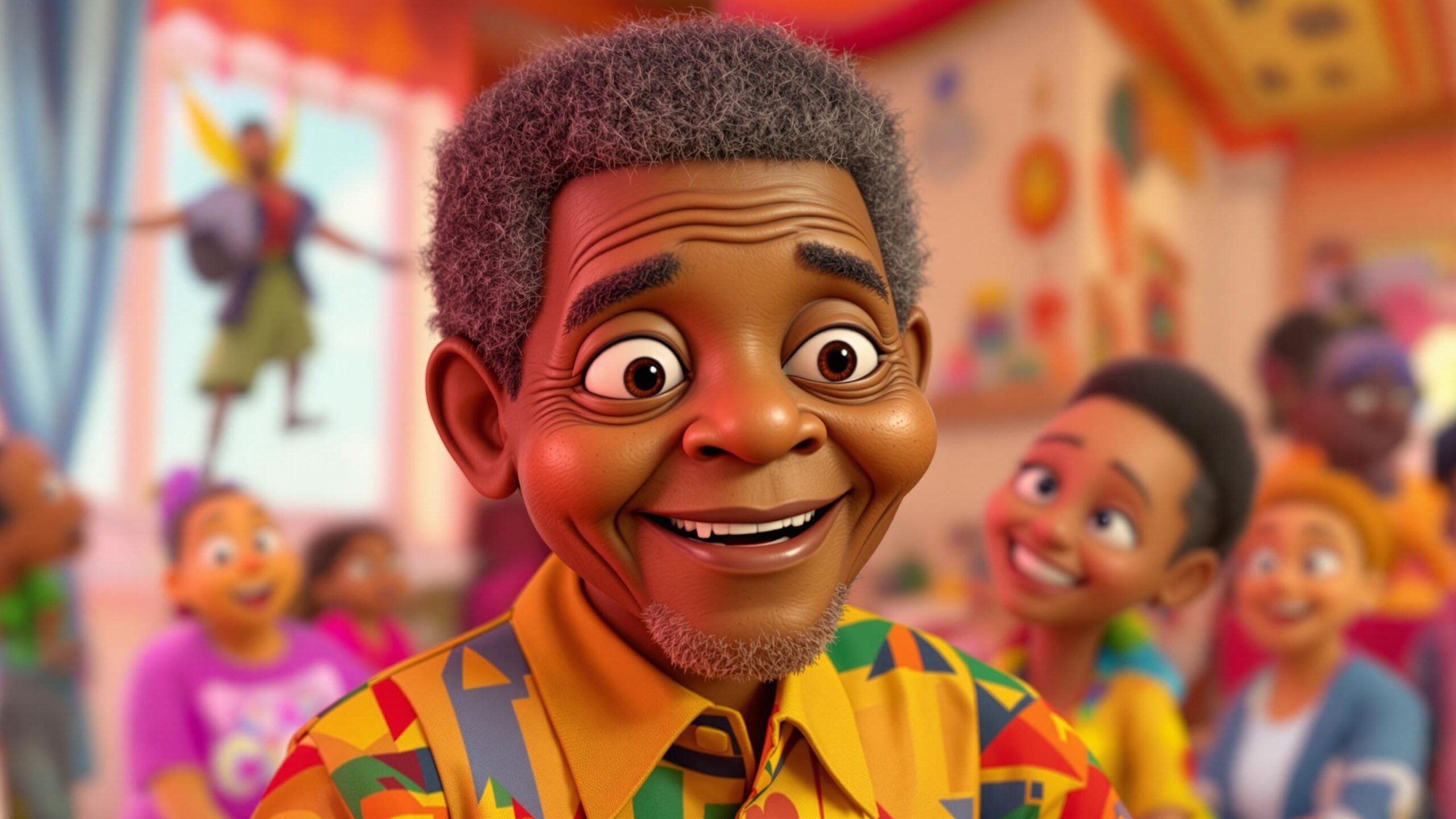A Statesman Forged in Sky and Sea
Before George H.W. Bush ever set foot in the White House, he had already flown 58 combat missions in World War II, been shot down over the Pacific, rescued by a submarine, and returned home to become one of the youngest Navy pilots of his time. That experience didn’t just build character—it built perspective. Flying above the world and surviving its fires gave Bush a deep appreciation for the fragility of peace and the high cost of war. It’s no coincidence that the man who would later navigate the fall of the Berlin Wall, manage the peaceful collapse of the Soviet Union, and assemble a historic coalition in the Gulf War learned early how fast the world could spin out of control—and how vital steady hands were at the helm. From skyward combat to the corridors of global diplomacy, George H.W. Bush was always looking ahead, with the calm confidence of a pilot and the soul of a pragmatist.
The Diplomatic Road Less Traveled
Many presidents arrive at 1600 Pennsylvania Avenue as governors or senators. Bush, however, came to the Oval Office with a passport full of world experience. He served as the U.S. Ambassador to the United Nations. He was the chief of the U.S. Liaison Office in China when full diplomatic relations hadn’t even been restored. And he was Director of the CIA during a tense period of the Cold War.
These weren’t ceremonial posts. These were proving grounds. Every step in his journey shaped his worldview, refined his strategic thinking, and built relationships that would become priceless assets during his presidency.
Bush didn’t approach foreign policy as a theorist. He approached it as a practitioner. He didn’t just understand diplomacy—he had lived it, negotiated it, and carried its weight across continents.
The Cold War Crumbles, Bush Builds Stability
The late 1980s and early 1990s were not a time of quiet international affairs. They were a geopolitical earthquake. The Soviet Union, America’s archrival for nearly half a century, was crumbling. The Berlin Wall, that grey concrete symbol of division, was coming down. Eastern Europe was awakening from the long freeze of communism, and no one knew what would rise from the rubble.
In such a volatile moment, loud leadership could have been catastrophic. But Bush chose restraint. While many expected celebratory fanfare, Bush kept the volume low. He didn’t dance on the Wall. He didn’t spike the ball. He knew that a humble victory would keep Russia from retreating into resentment and help shape a peaceful transition into a post-Cold War world.
His behind-the-scenes diplomacy, quiet encouragement, and constant communication with Soviet leader Mikhail Gorbachev helped prevent the unthinkable: nuclear backlash, civil war, or global panic.
It wasn’t flashy. But it was masterful.
Desert Storm: Building a Coalition Like No Other
In 1990, Saddam Hussein invaded Kuwait, threatening not only a sovereign nation but also global oil supplies and the balance of power in the Middle East. The world looked to America—and America looked to George H.W. Bush.
What followed was a masterclass in coalition-building. Bush didn’t act unilaterally. He rallied the United Nations, negotiated with allies and former adversaries alike, and assembled a 35-nation coalition, including Arab states, to support military action.
Operation Desert Storm was swift, strategic, and stunningly effective. The U.S.-led forces drove Saddam’s army out of Kuwait in just over 40 days, with relatively low casualties and overwhelming global support.
More important than the victory itself was the way it was won: legally, diplomatically, multilaterally. Bush didn’t just lead a war—he orchestrated a new kind of world order where diplomacy backed by resolve could still carry the day.
A Steady Hand in a Shifting World
Bush’s foreign policy brilliance lay not in bold slogans or shock headlines, but in quiet control. He had an uncanny ability to read the global room, to adapt without panicking, to engage without provoking. In a world suddenly untethered from Cold War binaries, he helped design a framework for cooperation, stability, and responsible American leadership.
He promoted German reunification—even when it was unpopular with European allies. He supported the expansion of NATO dialogue with Eastern Europe. He carefully navigated U.S.-China relations following the Tiananmen Square massacre, balancing condemnation with long-term strategy.
Bush understood that foreign policy isn’t about applause—it’s about outcomes. And that sometimes, the best diplomacy is done far from cameras, with handshakes instead of hashtags.
Personal Diplomacy: Letters, Trust, and Legacy
Perhaps one of the most underappreciated aspects of Bush’s foreign policy genius was his deeply personal style. He wrote letters—thousands of them. To world leaders, friends, even rivals. These weren’t formality-laden notes. They were human, heartfelt, and sincere.
Bush believed in trust. He believed that relationships mattered. And those relationships paid off. He had Gorbachev’s ear. He respected Margaret Thatcher. He understood the subtleties of Middle Eastern politics in ways that helped him avoid cultural missteps. He didn’t always get it perfect, but he got it personal—and that made the difference.
This wasn’t just old-school charm. It was strategic empathy. It helped soothe egos, build coalitions, and defuse tensions long before they made headlines.
From Berlin to Baghdad: The Global Blueprint
Across his presidency, Bush helped shape a post-Cold War vision that emphasized unity, cooperation, and American leadership rooted in moral purpose. He stood for international law. He empowered the UN. He embraced diplomacy backed by strength. And though his presidency lasted only one term, the ripple effects of his foreign policy decisions continued to shape the world for decades.
He kept the peace when the world teetered on chaos. He showed strength without arrogance, wisdom without ego, and strategy without spectacle.
Whether guiding Eastern Europe toward democracy, forming historic alliances, or carefully scaling down Cold War tensions, Bush approached foreign policy with the discipline of a veteran, the vision of a statesman, and the heart of a patriot.
The Mastermind Behind the Quiet Storm
It’s easy to overlook George H.W. Bush in the age of charismatic showmen and political firebrands. He wasn’t loud. He didn’t crave the spotlight. He didn’t try to dominate the world stage with bravado.
But in that calm demeanor was a world of calculated strength. He played chess when others were swinging wildly. He saw connections others missed. He was always thinking two moves ahead—whether on the battlefield, at the U.N., or across a tense conference table in Moscow.
He was the foreign policy president America didn’t know it needed until the world shifted—and he caught it with both hands.
Character as Compass
Bush’s foreign policy wasn’t just strategic—it was moral. He believed in service. He believed in honor. And he carried that ethos into every diplomatic handshake and every military decision. He didn’t view foreign policy as a popularity contest or a personal branding exercise. For him, it was a sacred duty.
He made hard calls—sometimes unpopular ones—not because they were politically convenient, but because they were right.
When Somalia faced starvation, he sent aid. When Eastern Europe cried out for democracy, he offered support. He didn’t posture—he performed. And he reminded the world that real leadership often comes without a mic.
A Legacy That Still Guides
George H.W. Bush’s foreign policy approach is often remembered by historians as one of the most skilled and stabilizing of any modern American president. His blend of experience, humility, and strategy created a model that is still studied by diplomats, scholars, and military leaders around the globe.
His doctrine was clear: diplomacy first, strength always, coalition whenever possible, and humility in victory.
He wasn’t afraid to make deals. He wasn’t afraid to say no. And he was never afraid to put country above party or popularity.
For Bush, foreign policy wasn’t an abstract game. It was real lives. Real risks. Real consequences. And that sense of grounded responsibility is what made him not just a president, but a steward of history.
The Sky Captain of Global Calm
George H.W. Bush flew through wartime skies as a young man. Decades later, he piloted the world through a storm of global change. He didn’t just handle foreign policy—he elevated it. He didn’t just react—he orchestrated. He wasn’t showy, but he was steady. And in a world that constantly threatened to unravel, his quiet strength held the seams together.
He believed in building bridges, not burning them. He knew allies weren’t extras in America’s story—they were co-authors of peace. He saw beyond red lines and rivalries. He saw opportunity in change, order in chaos, and hope in diplomacy.
George H.W. Bush may not have been the loudest leader, but he was one of the most effective. A veteran. A diplomat. A strategist. A master of foreign policy whose calm, clear leadership helped shape a safer, more cooperative world.
And in the grand theater of global affairs, that kind of mastery speaks louder than any microphone ever could.




